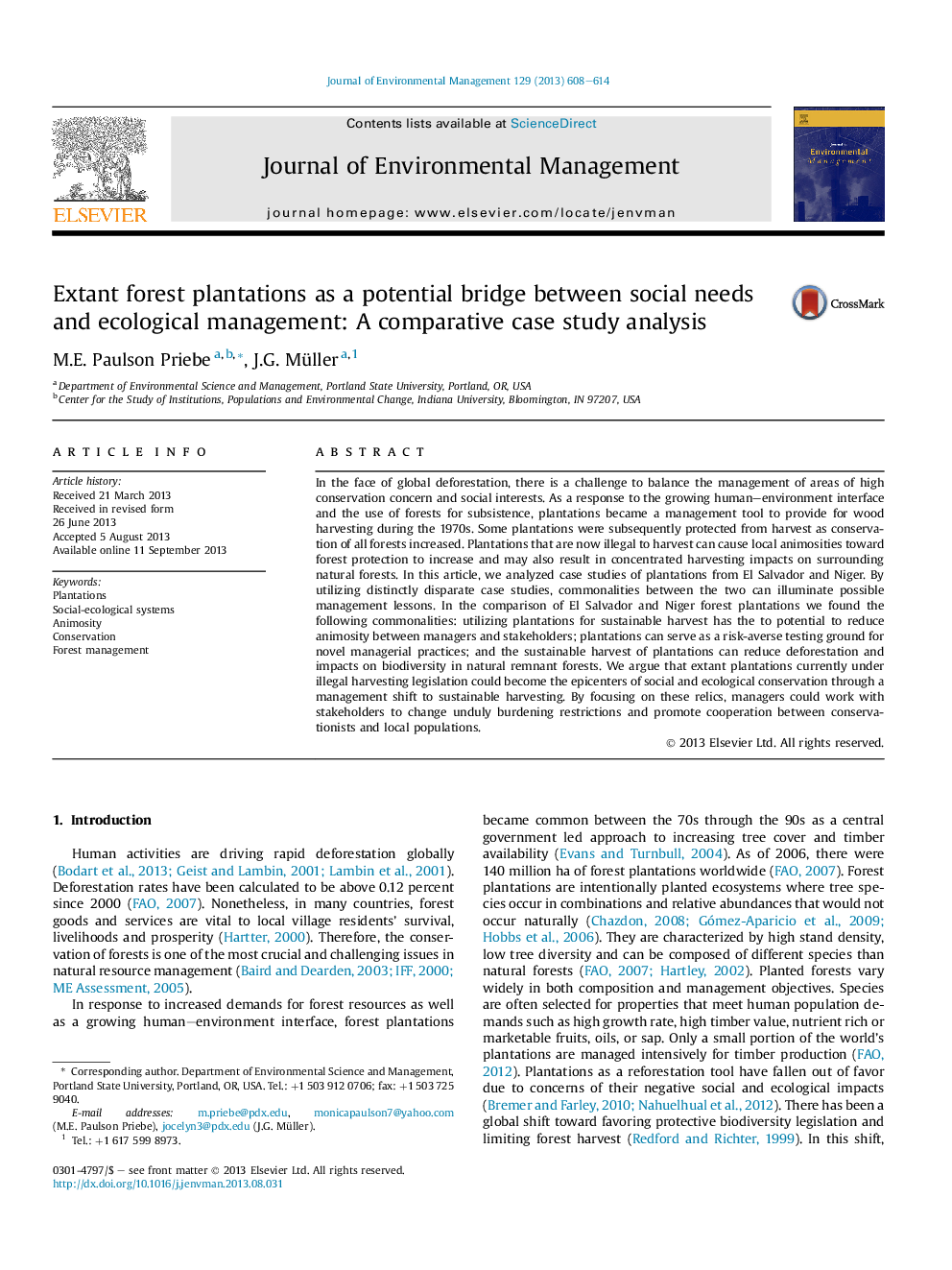| Article ID | Journal | Published Year | Pages | File Type |
|---|---|---|---|---|
| 1056206 | Journal of Environmental Management | 2013 | 7 Pages |
•This paper examines the role of extant forest plantations in conservation priority areas.•We used disparate case studies to define common management recommendations.•Increased access to plantation resources could reduce animosity and protect biodiversity.•Plantations could serve as risk-averse areas to test local management methods.•We posit that increased stakeholder access to plantations could bridge social and ecological needs.
In the face of global deforestation, there is a challenge to balance the management of areas of high conservation concern and social interests. As a response to the growing human–environment interface and the use of forests for subsistence, plantations became a management tool to provide for wood harvesting during the 1970s. Some plantations were subsequently protected from harvest as conservation of all forests increased. Plantations that are now illegal to harvest can cause local animosities toward forest protection to increase and may also result in concentrated harvesting impacts on surrounding natural forests. In this article, we analyzed case studies of plantations from El Salvador and Niger. By utilizing distinctly disparate case studies, commonalities between the two can illuminate possible management lessons. In the comparison of El Salvador and Niger forest plantations we found the following commonalities: utilizing plantations for sustainable harvest has the to potential to reduce animosity between managers and stakeholders; plantations can serve as a risk-averse testing ground for novel managerial practices; and the sustainable harvest of plantations can reduce deforestation and impacts on biodiversity in natural remnant forests. We argue that extant plantations currently under illegal harvesting legislation could become the epicenters of social and ecological conservation through a management shift to sustainable harvesting. By focusing on these relics, managers could work with stakeholders to change unduly burdening restrictions and promote cooperation between conservationists and local populations.
